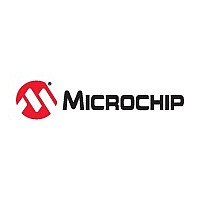PIC16F676-I/P Microchip Technology Inc., PIC16F676-I/P Datasheet - Page 65

PIC16F676-I/P
Manufacturer Part Number
PIC16F676-I/P
Description
14 PIN, 1.75 KB FLASH, 64 RAM, 12 I/O
Manufacturer
Microchip Technology Inc.
Datasheet
1.PIC16F676-IP.pdf
(132 pages)
Specifications of PIC16F676-I/P
Comparators
1
Cpu Speed
5 MIPS
Eeprom Memory
128 Bytes
Input Output
12
Memory Type
Flash
Number Of Bits
8
Package Type
14-pin PDIP
Programmable Memory
1.75K Bytes
Ram Size
64 Bytes
Speed
20 MHz
Timers
1-8-bit, 1-16-bit
Voltage, Range
2-5.5 V
Lead Free Status / Rohs Status
RoHS Compliant part
Electrostatic Device
Available stocks
Company
Part Number
Manufacturer
Quantity
Price
Company:
Part Number:
PIC16F676-I/P
Manufacturer:
RENESAS
Quantity:
5 600
Part Number:
PIC16F676-I/P
Manufacturer:
MICROCHIP/微芯
Quantity:
20 000
9.4
The PIC16F630/676 has 7 sources of interrupt:
• External Interrupt RA2/INT
• TMR0 Overflow Interrupt
• PORTA Change Interrupts
• Comparator Interrupt
• A/D Interrupt (PIC16F676 only)
• TMR1 Overflow Interrupt
• EEPROM Data Write Interrupt
The Interrupt Control register (INTCON) and Peripheral
Interrupt register (PIR) record individual interrupt
requests in flag bits. The INTCON register also has
individual and global interrupt enable bits.
A global interrupt enable bit, GIE (INTCON<7>) enables
(if set) all unmasked interrupts, or disables (if cleared) all
interrupts. Individual interrupts can be disabled through
their corresponding enable bits in INTCON register and
PIE register. GIE is cleared on RESET.
The return from interrupt instruction,
interrupt routine, as well as sets the GIE bit, which re-
enables unmasked interrupts.
The following interrupt flags are contained in the
INTCON register:
• INT pin interrupt
• PORTA change interrupt
• TMR0 overflow interrupt
The peripheral interrupt flags are contained in the
special register PIR1. The corresponding interrupt
enable bit is contained in Special Register PIE1.
The following interrupt flags are contained in the PIR
register:
• EEPROM data write interrupt
• A/D interrupt
• Comparator interrupt
• Timer1 overflow interrupt
When an interrupt is serviced:
• The GIE is cleared to disable any further interrupt
• The return address is pushed onto the stack
• The PC is loaded with 0004h
Once in the Interrupt Service Routine, the source(s) of
the interrupt can be determined by polling the interrupt
flag bits. The interrupt flag bit(s) must be cleared in soft-
ware before re-enabling interrupts to avoid RA2/INT
recursive interrupts.
For external interrupt events, such as the INT pin, or
PORTA change interrupt, the interrupt latency will be
three or four instruction cycles. The exact latency
depends upon when the interrupt event occurs (see
Figure 9-11). The latency is the same for one or two-
cycle instructions. Once in the Interrupt Service
Routine, the source(s) of the interrupt can be
determined by polling the interrupt flag bits. The
2003 Microchip Technology Inc.
Interrupts
RETFIE
, exits
interrupt flag bit(s) must be cleared in software before
re-enabling interrupts to avoid multiple interrupt
requests.
Note 1: Individual interrupt flag bits are set,
2: When an instruction that clears the GIE
regardless
corresponding mask bit or the GIE bit.
bit is executed, any interrupts that were
pending for execution in the next cycle
are ignored. The interrupts which were
ignored are still pending to be serviced
when the GIE bit is set again.
PIC16F630/676
of
the
status
DS40039C-page 63
of
their















